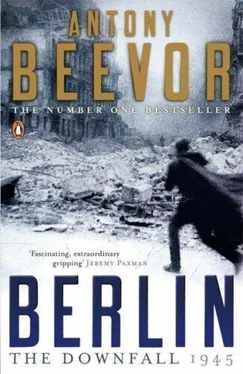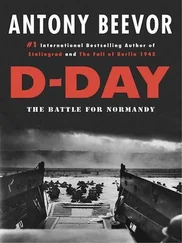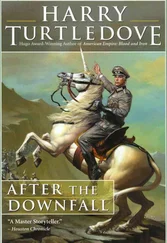On the other hand, when the chief of SMERSH with the 2nd Belorussian Front claimed that his men had discovered ‘a German sabotage school in the village of Kovalyowo’, he may have been right. The names of those trained there were all Russian or Ukrainian. The Germans, in their desperation, had been resorting to the use of Soviet prisoners more and more. Many of these Russians and Ukrainians had probably volunteered in the hope of an easy way home, but even their prompt surrender to Soviet military authorities would not have saved them, to judge by other cases.
NKVD detachments seem to have spent more time searching houses and barns than combing the huge areas of forest. One detachment found a group of eight German women sitting in a hay stack. ‘An attentive sergeant’ found that they were not women, but ‘German soldiers wearing women’s dresses’. There were many reports of this nature.
It appears that East Prussian peasant families were often as naïve as their Russian counterparts. Patrols on house searches found that the inhabitants could not stop glancing at a particular object or leave it alone. In one house, the woman went to sit on a trunk. The NKVD soldiers pushed her aside and found a man hidden in the trunk. One patrol noted the worried glances of the owner of the house towards the bed. The NKVD soldiers pulled off the mattress and saw that the boards of the bed were very high. They removed the boards and found a man dressed in women’s clothes. In another house they found a man hiding under the coats on a coat-stand. The man’s feet were off the ground because he had strung himself up with a strap under his armpits. Usually, the most obvious hiding places were used, such as sheds, barns and hay ricks. Sniffer dogs soon found them. Only a few constructed underground refuges. Sometimes the NKVD patrols did not bother to search a house. They set it on fire, and those who were not burned to death were shot as they jumped from the windows.
While many Volkssturm men wanted to stay near their farms, stragglers from the Wehrmacht were trying to slip back through the lines to Germany. In many cases they dressed themselves in Red Army uniforms taken from soldiers they had killed. If caught, they were mostly shot on the spot. Any prisoners taken, whether German, Russian or Polish, were put in a ‘preliminary prison’. These buildings were usually just a commandeered house with barbed wire nailed over the windows and the sign ‘Jail: NKVD of the USSR’ chalked up on a wall outside. They were then interrogated by SMERSH, and, depending on the confession obtained, were sent off to a camp or to forced labour battalions.
NKVD chiefs also kept a sharp eye on their business affairs. Major General Rogatin, the commander of NKVD troops with the 2nd Belorussian Front and formerly the NKVD commander at Stalingrad, discovered ‘that in some [NKVD] units a majority of officers and soldiers are not engaged in their duty, but are active in the collection of looted property… It was established that looted property was shared out within the regiments without the knowledge of division staff. In the regiments there are cases of selling and bartering looted products, sugar, tobacco, wine and gasoline taken from drivers with the advancing units of the Red Army, and motorcycles. Such a situation in the [NKVD] regiments and absence of discipline has led to a sharp increase in extraordinary events. There are soldiers who do their duty, and then there are the others who are doing nothing but loot. The looters should now be put to work along with those who do their duty.’ It appears that there was no question of punishing them, and the phrase ‘without the knowledge of division staff’ is most revealing. Divisional headquarters was outraged presumably because it had discovered that it was not receiving its share of the proceeds.
There can be little doubt that the Red Army resented the ‘rear rats’ in the NKVD, but the feeling ran both ways. The NKVD did not appreciate having to deal with ammunition and weapons abandoned by Germans and advancing units of Red Army. ‘All this leads to massive stealing by bandits and the local population. It has been noticed that adolescents get hold of these weapons and organize armed groups and terrorize the population. This creates favourable conditions for the growth of banditry.’ An order was also issued forbidding the use of grenades for fishing, a popular sport among Red Army men in the many lakes of East Prussia and Poland.
NKVD rifle regiments had to deal not only with German stragglers and Volkssturm living like outlaws in the forests, but also with groups of Red Army deserters. On 7 March, a group of ‘fifteen armed deserters’ ambushed an NKVD patrol of the 2nd Belorussian Front near the village of Dertz. Another group of eight was also living in the forest nearby. All had deserted at the end of December 1944. Two days later, the NKVD reported ‘finding more deserters travelling away from the front in the rear areas’. Another ‘bandit group’ of deserters from the 3rd Army, led by a Ukrainian captain and Party member with the order of the Red Banner, who had deserted from hospital on 6 March, lived off the land round Ortelsburg. Their group, armed with sub-machine guns and pistols, was extremely mixed. It included men from Tula, Sverdlovsk, Voronezh and the Ukraine, as well as a Pole, three German women and another German man from the Ortelsburg district.
Most deserters, however, especially Belorussians and Ukrainians, many of whom were coopted Poles, tried to sneak home in ones and twos. Some dressed up as women. Others bandaged themselves up, then went to railheads and stole the documents of wounded men. A new special pass for wounded men had to be brought in to stop this. Sometimes men simply disappeared, and nobody knew whether they had deserted or been killed in battle. On 27 January, two T-34 tanks from the 6th Guards Tank Corps in East Prussia left on an operation and neither the tanks nor the sixteen tankists and infantrymen with them were ever seen again, dead or alive.
In spite of the large numbers of NKVD troops in the rear areas, there was astonishingly little control over Red Army personnel. ‘The Soviet military leadership,’ stated a German intelligence report of 9 February, ‘is concerned about the growing lack of discipline as a result of their advance into what for Russians is a prosperous region.’ Property was being looted and destroyed and civilians needed for forced labour were killed for little reason. Chaos was also caused by the number of civilian ‘citizens of the USSR who come to East Prussia to collect captured property’.
The senseless death of a Hero of the Soviet Union, Colonel Gorelov, commander of a guards tank brigade, horrified many officers in the 1st Belorussian Front. At the beginning of February he was sorting out a traffic jam on the road a few kilometres from the German border and was shot by drunken soldiers. ‘Such cases of bloody drunken violence are not isolated,’ Grossman noted. A single NKVD regiment lost five dead and thirty-four men injured from being run down by drivers during the first ten weeks of the year.
The young women traffic controllers did not blow whistles when attempting to restore order in traffic jams, they fired their sub-machine guns in the air. On one occasion behind the 2nd Belorussian Front, a young woman traffic controller called Lydia ran up to the driver’s window of a vehicle which had blocked the road. She began to yell obscenities at him. This had little effect. Obscenities were yelled back at her. But then she received unexpected reinforcements in the tall and impressive form of Marshal Rokossovsky, who had leaped from his staff car, drawing his pistol in anger. When the driver saw the marshal he was literally paralysed with fear. His officer lost his head completely. He jumped out of the cab and ran into the bushes to hide.
Читать дальше











